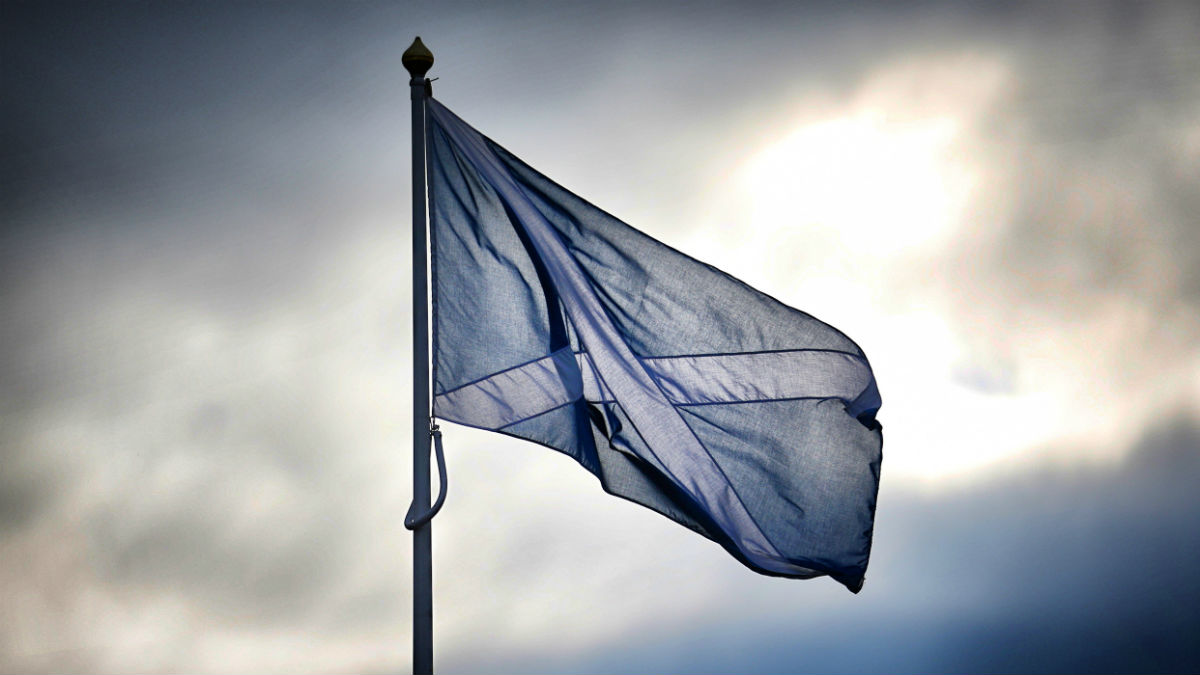Should the Scots forget independence and team up with Canada?
One Canadian writer thinks Scotland should sever links with the UK and become part of Canada. Could the seemingly absurd idea actually work?

A free daily email with the biggest news stories of the day – and the best features from TheWeek.com
You are now subscribed
Your newsletter sign-up was successful
The prospect of Brexit and another independence referendum means that Scotland already faces an uncertain future.
But a Canadian author has proposed, in what he calls "a flight of fancy in an ideal world", that his country should ask Scotland to become its eleventh province.
In an article published this week in the Toronto-based Globe and Mail, Ken McCoogan writes: "Let's invite Scotland to join Canada. The Scots aren't happy with the rest of Britain. They aren't happy politically with Westminster's shift to the right. They aren't happy with Brexit, and with being frog-marched out of a multinational alliance they don't wish to leave."
The Week
Escape your echo chamber. Get the facts behind the news, plus analysis from multiple perspectives.

Sign up for The Week's Free Newsletters
From our morning news briefing to a weekly Good News Newsletter, get the best of The Week delivered directly to your inbox.
From our morning news briefing to a weekly Good News Newsletter, get the best of The Week delivered directly to your inbox.
So what are the pros and cons of a constitutional alliance stretching thousands of miles across the Atlantic?
Given the distance, how would it work?
"Distance has become irrelevant," argues McGoogan, who refers to the advancements in communications technologies and the speed of air travel.
Besides, he points out, Glasgow is closer to Halifax in eastern Canada than Halifax is to Vancouver, the nation's western city.
A free daily email with the biggest news stories of the day – and the best features from TheWeek.com
Why would Scotland want to partner Canada?
A Canadian Scotland would have more powers than it does as part of the UK, McGoogan claims.
Provinces in Canada have jurisdiction over their internal constitutions, he says, as well as direct taxation "for provincial purposes".
Citing the example of Quebec, which the Canadian government recognises as "a nation within a united Canada", McGoogan believes that Scotland "would be distinct, but differently. And Canadians know how to accommodate difference."
In addition, Scotland would control its North Sea oil resources – a long-standing demand of Scottish nationalists – because Canada's constitution places natural resources under the jurisdiction of its provinces.
What's more, there are already some 4.7 million Canadians who claim Scottish heritage. Add that number to Scotland's population of 5.3 million and you have a cornerstone of 10 million with a Caledonian connection – or nearly 25 per cent of Canada's population.
What are the advantages for Canada?
The Canadians would acquire more economic and geopolitical clout as a nation of more than 41 million people.
McGoogan also anticipates that Scotland could still apply to join the European Union after becoming a Canadian province, giving Canada the chance to "establish a foothold in multicultural Europe".
Ties between the two countries go back a long way. McGoogan says Scotland "had a major, major hand" in creating the political culture in Canada, as well as its educational and banking institutions. "The Scots have left their fingerprints all over this country," he says.
What are the stumbling blocks?
Apart from the constitutional and political challenges involved in such a re-triangulation of relations between the UK, Scotland and Canada, the obvious stumbling block in a Canada-Scotland link-up is that Scotland, led by a Scottish National Party committed to independence, would not be fully independent.
Nor are Scotland and Canada contiguous – they are separated by the small matter of the Atlantic Ocean.
McGoogan says distance is irrelevant but the distance from Ottawa, Canada's capital, to Scotland's capital Edinburgh is more than 3,000 miles, nearly 10 times the distance between Edinburgh and London.
-
 The week’s best photos
The week’s best photosIn Pictures An explosive meal, a carnival of joy, and more
-
 The ‘ravenous’ demand for Cornish minerals
The ‘ravenous’ demand for Cornish mineralsUnder the Radar Growing need for critical minerals to power tech has intensified ‘appetite’ for lithium, which could be a ‘huge boon’ for local economy
-
 Why are election experts taking Trump’s midterm threats seriously?
Why are election experts taking Trump’s midterm threats seriously?IN THE SPOTLIGHT As the president muses about polling place deployments and a centralized electoral system aimed at one-party control, lawmakers are taking this administration at its word
-
 Epstein files topple law CEO, roil UK government
Epstein files topple law CEO, roil UK governmentSpeed Read Peter Mandelson, Britain’s former ambassador to the US, is caught up in the scandal
-
 Iran and US prepare to meet after skirmishes
Iran and US prepare to meet after skirmishesSpeed Read The incident comes amid heightened tensions in the Middle East
-
 Israel retrieves final hostage’s body from Gaza
Israel retrieves final hostage’s body from GazaSpeed Read The 24-year-old police officer was killed during the initial Hamas attack
-
 China’s Xi targets top general in growing purge
China’s Xi targets top general in growing purgeSpeed Read Zhang Youxia is being investigated over ‘grave violations’ of the law
-
 Panama and Canada are negotiating over a crucial copper mine
Panama and Canada are negotiating over a crucial copper mineIn the Spotlight Panama is set to make a final decision on the mine this summer
-
 Why Greenland’s natural resources are nearly impossible to mine
Why Greenland’s natural resources are nearly impossible to mineThe Explainer The country’s natural landscape makes the task extremely difficult
-
 Iran cuts internet as protests escalate
Iran cuts internet as protests escalateSpeed Reada Government buildings across the country have been set on fire
-
 US nabs ‘shadow’ tanker claimed by Russia
US nabs ‘shadow’ tanker claimed by RussiaSpeed Read The ship was one of two vessels seized by the US military